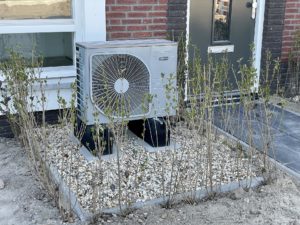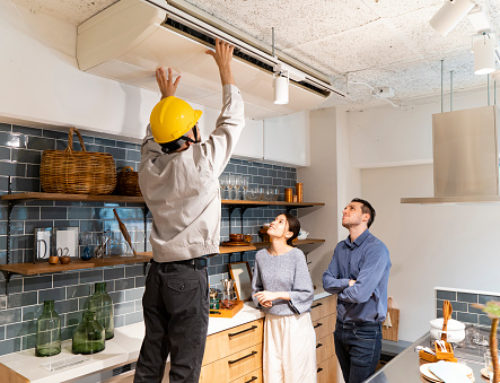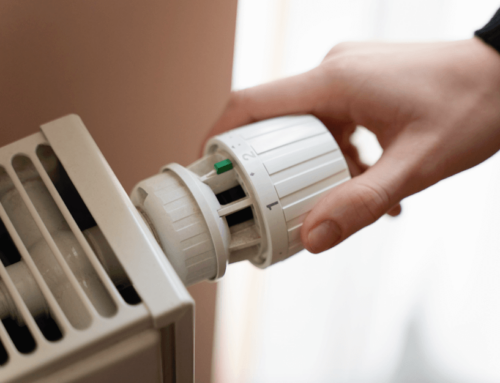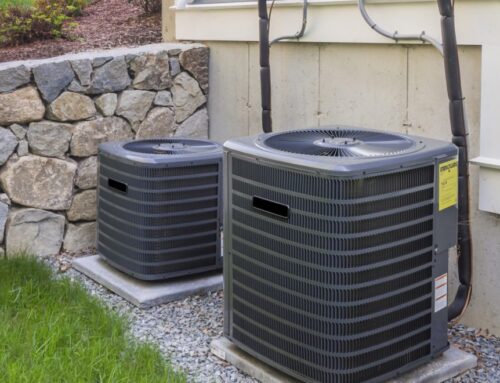 As energy prices continue to soar and the effects of climate change become more evident, more people are exploring energy-saving options to heat and cool their homes. Heat pumps are one such alternative. Despite what the name suggests, a heat pump is an energy-efficient type of heating, ventilation, and air conditioning (HVAC) system. But what exactly is a heat pump and how does it work?
As energy prices continue to soar and the effects of climate change become more evident, more people are exploring energy-saving options to heat and cool their homes. Heat pumps are one such alternative. Despite what the name suggests, a heat pump is an energy-efficient type of heating, ventilation, and air conditioning (HVAC) system. But what exactly is a heat pump and how does it work?
Deep Dive into Heat Pumps
A heat pump is like having a two-for-one special, it’s an air conditioner and a heating system all in one. Much like an air conditioning system, a heat pump moves thermal energy across locations to make your home’s atmosphere more comfortable. During winter, a heat pump uses electricity to pull warm air into your home to provide heat. In the summer, it’s similar to an air conditioner—it transfers warm air from the inside to the outside and uses a refrigerant to cool and circulate cool air. Unlike an air conditioner, however, a heat pump provides thermal control almost the entire year, except for the extremely cold days in the winter.
Heat pumps use a small amount of electricity for power and produce more energy than they use. In Canada, the efficiency of a heat pump is rated by the Seasonal Energy Efficiency Ratio (SEER) and the Heating Seasonal Performance Rating (HSPF). The SEER is calculated by dividing the cooling output—measured in British Thermal Units (BTU)—by the amount of electrical energy consumed in watt-hours. The HSPF is the same calculation except for heating. The minimum SEER rating required in Canada for heat pumps is 13; the higher the rating, the more energy-efficient the heat pump. Heat pumps can reduce energy costs by as much as 50%.
Types of Heat Pumps
Heat pumps have two main components: a condenser—installed on the outside of your home—and an indoor head unit that mounts on the wall or floor inside. The three types of heat pumps are air-source, water-source, and geothermal, as described below.
Air-Source Heat Pump
These systems are energy-efficient, quiet, and can be ducted or ductless. They provide heating by moving hot air from the outside to the indoors. For cooling, it does the reverse—moving heat from inside your home to the outside.
Ducted air-source heat pumps work similar to a central air conditioner and furnace system and are connected to the ductwork of your home. There will be an outdoor unit and an indoor coil in the furnace area; the temperature is then controlled by a central thermostat.
Ductless systems have a heat exchanger and a blower in a contained unit. They have an outdoor unit and will have one or more heads mounted throughout the interior of your home.
Water-Source Heat Pump
Water-source heat pumps are more energy-efficient than geothermal or air-source heat pumps, but typically require a large body of water. The stable temperature of the water, in comparison to air and ground temperatures, contributes to the efficiency of water-source heat pumps. Water-source heat pumps pull groundwater or water from a nearby source through the system. They extract the heat from the liquid and convert it to thermal energy to generate a heat supply for your home.
Geothermal Heat Pump
Geothermal heat pumps, also known as ground-source heat pumps, extract thermal energy from the soil. They typically consist of three main components:
- The earth connection subsystem consists of pipes buried in the ground. These pipes circulate a liquid that either absorbs heat or relinquishes heat to the soil.
- A heat pump subsystem uses the thermal energy from the liquid, and concentrates it to either heat or cool a building.
- A heat distribution subsystem is the ductwork used to distribute the cool or hot air throughout a building.
Heat Pumps in Canada
Canada HVAC is your premier online store for air-to-air ducted and ductless heat pumps and can help if you are looking for an energy-efficient solution for the scorching heat of summer or the cold of winter. We can connect you with the right heating and cooling solutions for your home, and we have installation packages and extended warranties available. If you’re ready to enjoy energy savings while improving the comfort of your home, contact us today; visit our website or call 833-415-3019.





